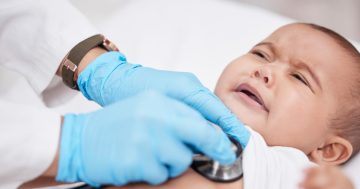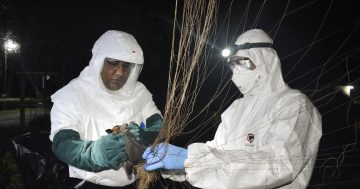 The Department of Health has announced a measles alert after a case of the viral disease was confirmed in a returned traveller.
The Department of Health has announced a measles alert after a case of the viral disease was confirmed in a returned traveller.
The individual, who was infected overseas, visited a number of Perth venues while infectious from 7-to-13 April.
Director of Communicable Diseases at the Department, Paul Armstrong said public health staff were contacting people who were exposed, where they were known.
“We wish to advise the person also used a number of public transport routes while infectious and it is not possible for us to trace everyone who was travelling at those times to warn them about the potential risk,” Dr Armstrong said.
“Measles is a serious and highly contagious viral illness spread by tiny droplets released when infected people cough and sneeze.”
He said children and adults without measles immunity who were inadvertently exposed during this period were at risk of being infected and should be vigilant for the onset of symptoms.
“People with measles typically develop symptoms around 10 days after being exposed to the virus, but this can vary from seven to 18 days,” Dr Armstrong said.
“Early symptoms include fever, cough, runny nose and sore eyes, followed by a red, blotchy rash three or four days later. The rash usually starts on the face and spreads to the rest of the body.”
He said anyone who had a potential exposure to measles and who developed a fever with these early symptoms should see a doctor. However it was important to call ahead before travelling to a clinic or Emergency Department.
“Then you can be isolated from infecting other patients and staff when you arrive,” Dr Armstrong said.
He said every measles case was treated as a public health emergency because of the risk of local spread and the potentially severe nature of the disease.







